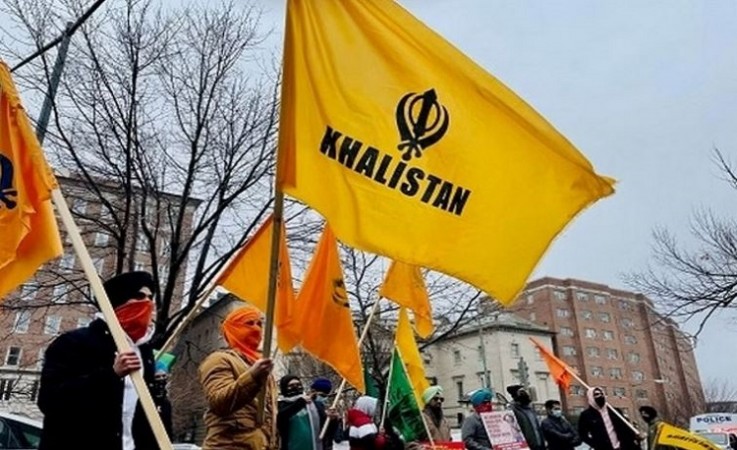
Amid the ongoing dispute between India and Canada concerning the killing of Khalistani terrorist Hardeep Singh Nijjar, top Indian government sources have alleged that Canadian diplomats in consulates throughout Chandigarh and Punjab are issuing visas to individuals known to support the Khalistani movement. This revelation has fueled escalating tensions between the two nations, which were ignited last month by the assassination of Canada-based pro-Khalistan terrorist Hardeep Singh Nijjar in Surrey, British Columbia.
According to high-ranking sources, despite being aware of the criminal backgrounds of these visa applicants, Canadian ambassadors have displayed a concerning leniency in their visa-granting practices. What's more, these visas are reportedly being extended to bolster the Khalistani cause and increase their influence. The sources have accused Canadian diplomats of a deliberate strategy to facilitate the departure of certain individuals from India, including those who have been involved in criminal cases.
In response to these allegations, Canada has contended that it engaged in multiple "meetings" with India to bring to their attention what it considers "credible allegations" of Indian state involvement, including its intelligence agency, in the assassination. Furthermore, on October 20th, the Canadian government announced the withdrawal of a total of 41 diplomats and their dependents from India in response to New Delhi's threat to revoke their diplomatic immunity. Melanie Joly, Canada's foreign minister, expressed concerns about the personal safety of these diplomats, explaining, "Forty-one Canadian diplomats and their 42 dependents were at risk of having their immunity revoked on arbitrary grounds."
Prime Minister Trudeau also criticized India for making daily life increasingly challenging for millions of people in both India and Canada due to these diplomatic developments. With the reduction of Canadian diplomats in India, the country's Immigration Minister, Marc Miller, anticipates a slowdown in visa processing for Indians seeking to come to Canada. This staff reduction is expected to result in a backlog of 17,500 Canadian visa applications pending decisions until the end of December. However, there is hope that normal processing will resume by early 2024, according to reports.
Addressing the diplomatic issue, External Affairs Minister S. Jaishankar insisted that New Delhi's demand for diplomatic parity stems from concerns about what it perceives as "continuous interference in our affairs by Canadian personnel." He added that while not all of this information has been publicly disclosed, more details may emerge over time to clarify India's discomfort with many Canadian diplomats. Jaishankar emphasized that India's stance on maintaining diplomatic parity aligns with the Vienna Convention and suggested that India might resume visa services for Canadians "very soon" if progress is observed in the safety of Indian diplomats in Canada.
Sri Lanka Takes a Bold Step: Visa-Free Entry for 7 Countries, Including India
Trump Pledges to Bar Gaza Refugees, 'Antisemitic' Students in 2024 Election